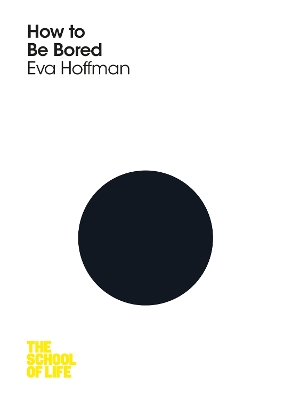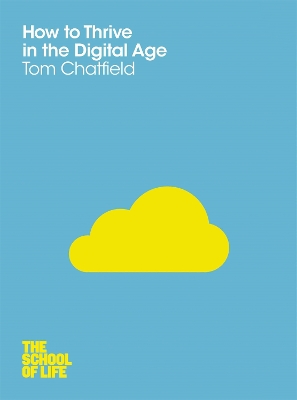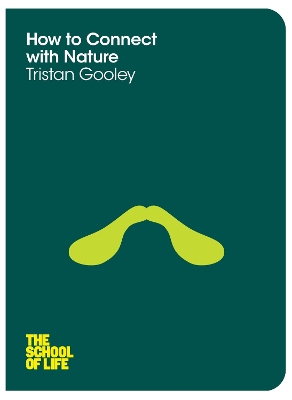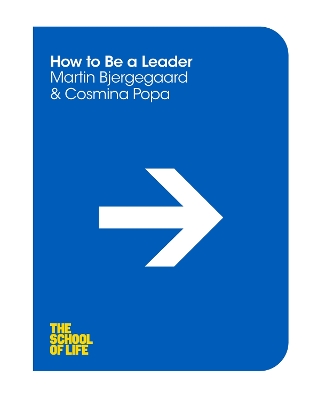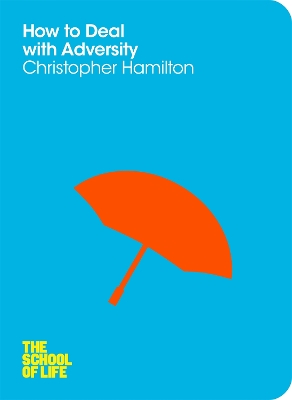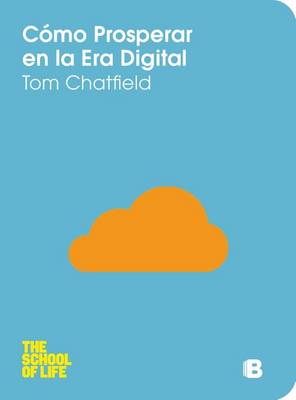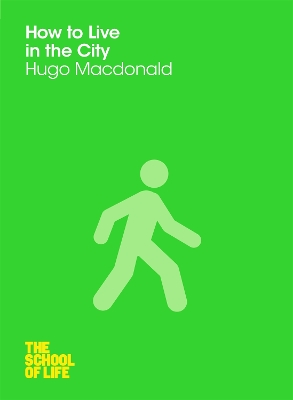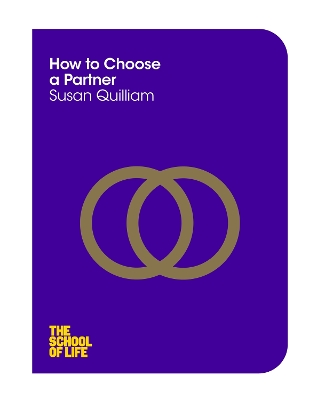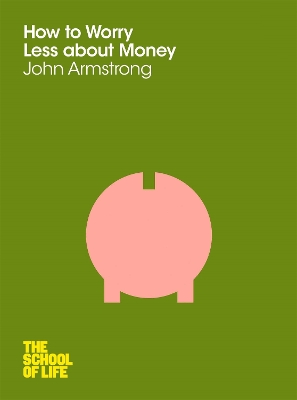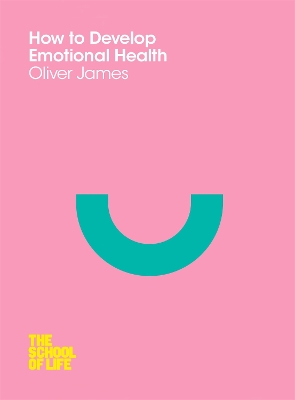The School of Life
10 total works
Lethargic inactivity can be debilitating and depressing; but for those living in the modern world, the pendulum has swung far in the other direction. We live in a hectic, hyperactive, over-stimulated age. Excessive busyness and overfilled schedules are the norm, as are their effects on our mental and emotional lives. How might we address and counter such problems, for the sake of experiencing our lives more fully?
In How to Be Bored, Eva Hoffman explores the importance we place on success, high level function, effectiveness and alertness in today's competitive society. In a world where it is almost impossible to be idle, she draws upon lessons from history, literature and psychotherapy to help us embrace boredom and find meaning in doing nothing - to appreciate real reflection and enjoy the richness of our inner and external lives.
Our world is, increasingly, a digital one. Over half of the planet’s adult population now spend more of their waking hours ‘plugged in’ than not, whether to the internet, mobile telephony, or other digital media. To email, text, tweet and blog our way through our careers, relationships and even our family lives is now the status quo. But what effect is this need for constant connection really having? For the first time, Tom Chatfield examines what our wired life is really doing to our minds and our culture - and offers practical advice on how we can hope to prosper in a digital century.
One in the new series of books from The School of Life, launched May 2012:
How to Stay Sane by Philippa Perry
How to Find Fulfilling Work by Roman Krznaric
How to Worry Less About Money by John Armstrong
How to Change the World by John-Paul Flintoff
How to Thrive in the Digital Age by Tom Chatfield
How to Think More About Sex by Alain de Botton
A deep knowledge of our natural environment is no longer a vital part of everyday survival, certainly for those of us living in cities and working in weatherproof offices. Unless we have an inherent love of the great outdoors, do we really need to connect with nature? Bestselling author Tristan Gooley believes that real connection, no matter how small, can enrich us as individuals, allowing us to see every living thing in its own intricate network. Offering a host of techniques, he helps us awaken our senses and deepen our understanding of nature's cycles, conflicts and relationships. By cultivating the right mindset we can gain a better appreciation of the world, both indoors and outdoors.
One in the new series of books from The School of Life, launched January 2014:
How to Age by Anne Karpf
How to Develop Emotional Health by Oliver James
How to Be Alone by Sara Maitland
How to Deal with Adversity by Christopher Hamilton
How to Think About Exercise by Damon Young
How to Connect with Nature by Tristan Gooley
How to be a Leader
by Martin Bjergegaard, Cosmina Popa, and The School of Life
No one is born to lead. This is the idea at the heart of this thoughtful book on leadership. Popular culture feeds us images of the square-jawed, strong-armed leader - charismatic, powerful, decisive - but the truth is, with the right amount of self-knowledge and authenticity, anyone can be a good leader, even those who don't fit the stereotype.
There are countless courses and books available on leadership technique, decision-making and public speaking, but How to Be a Leader aims to give you the tools to understand and bring out your own leadership style. With an in-depth look at what it really means to lead, and the difference between being a manager and being a leader, How to Be a Leader invites you to explore - and accept - the unique leader in you.
No matter how insulated we are by wealth or friends we can all expect to undergo some form of loss, failure or disappointment. The common reaction is to bear it as best we can - some do this better than others - and move on with life. Christopher Hamilton proposes a different response to adversity. Focusing on the arenas of family, love, illness and death, he explores constructive ways to deal with adversity and embrace it to derive unique insight into our condition. Offering examples from history, literature and science, he suggests how we might recognize it as a precious source of enlightenment, shaping our very existence.
One in the new series of books from The School of Life, launched January 2014:
How to Age by Anne Karpf
How to Develop Emotional Health by Oliver James
How to Be Alone by Sara Maitland
How to Deal with Adversity by Christopher Hamilton
How to Think About Exercise by Damon Young
How to Connect with Nature by Tristan Gooley
How to Live in the City
by Edward Hollis, The School of Life, and Hugo Macdonald
Building a relationship with a city is a lot like building a relationship with another person - just as cities can be intoxicating, generous and inspiring, so they can also be dangerous, fickle and impenetrable. How to Live in the City is a book for navigating and nurturing this important relationship.
Hugo Macdonald believes you need to feel a city to understand it. He won't tell you how wide the perfect pavement should be but he will show you how to walk down a pavement with eyes wide open. This is a book to help you feel human in an inhuman environment.
Choosing a romantic partner is one of contemporary life's biggest adventures. But other aspects of modern living - being globally more mobile, a fall in religious belief, social liberalization and more job opportunities (but longer working hours) - mean meeting a mate has rarely been so challenging, and rarely so important.
In How to Choose a Partner, Susan Quilliam guides us through the process of finding the right partner for us as individuals. The real challenge is that we grow. Drawing upon rich cultural material, psychology and her background in relationship therapy, Susan presents partner choice as a self-development journey, driving us to learn more about ourselves, about other people, about life and the way we want to live.
Our relationship with money is one that lasts a lifetime, yet traditionally books on the subject tend to take one of two routes: a) how to get more, or b) how to deal with less. John Armstrong turns these approaches upside down, and looks not at money itself, but at how we relate to it and the meaning we attach to it. How does it drive us and frighten us? Can it change the world for the better? And how much do we actually need? Offering surprising and helpful new insights, this book will encourage you to redefine your feelings about money, and ultimately enable you to discover what is really important to you in life.
One in the new series of books from The School of Life, launched May 2012:
How to Stay Sane by Philippa Perry
How to Find Fulfilling Work by Roman Krznaric
How to Worry Less About Money by John Armstrong
How to Change the World by John-Paul Flintoff
How to Thrive in the Digital Age by Tom Chatfield
How to Think More About Sex by Alain de Botton
Happiness is a loaded term that means different things to different people. To some, it might mean life satisfaction, to others, a fleeting moment of joy. Rather than seeking to be happy, Oliver James encourages us to cultivate our emotional health. Outlining the five elements of good emotional health - insightfulness, a strong sense of self, fluid relationships, authenticity and playfulness in our approach to life - he offers strategies for optimizing each characteristic to live more fulfilling lives. Helping us to understand the impact our emotional baggage has on our daily interactions, he reveals how to overcome unhelpful patterns and become more self-aware - revitalizing our approach to life.
One in the new series of books from The School of Life, launched January 2014:
How to Age by Anne Karpf
How to Develop Emotional Health by Oliver James
How to Be Alone by Sara Maitland
How to Deal with Adversity by Christopher Hamilton
How to Think About Exercise by Damon Young
How to Connect with Nature by Tristan Gooley
